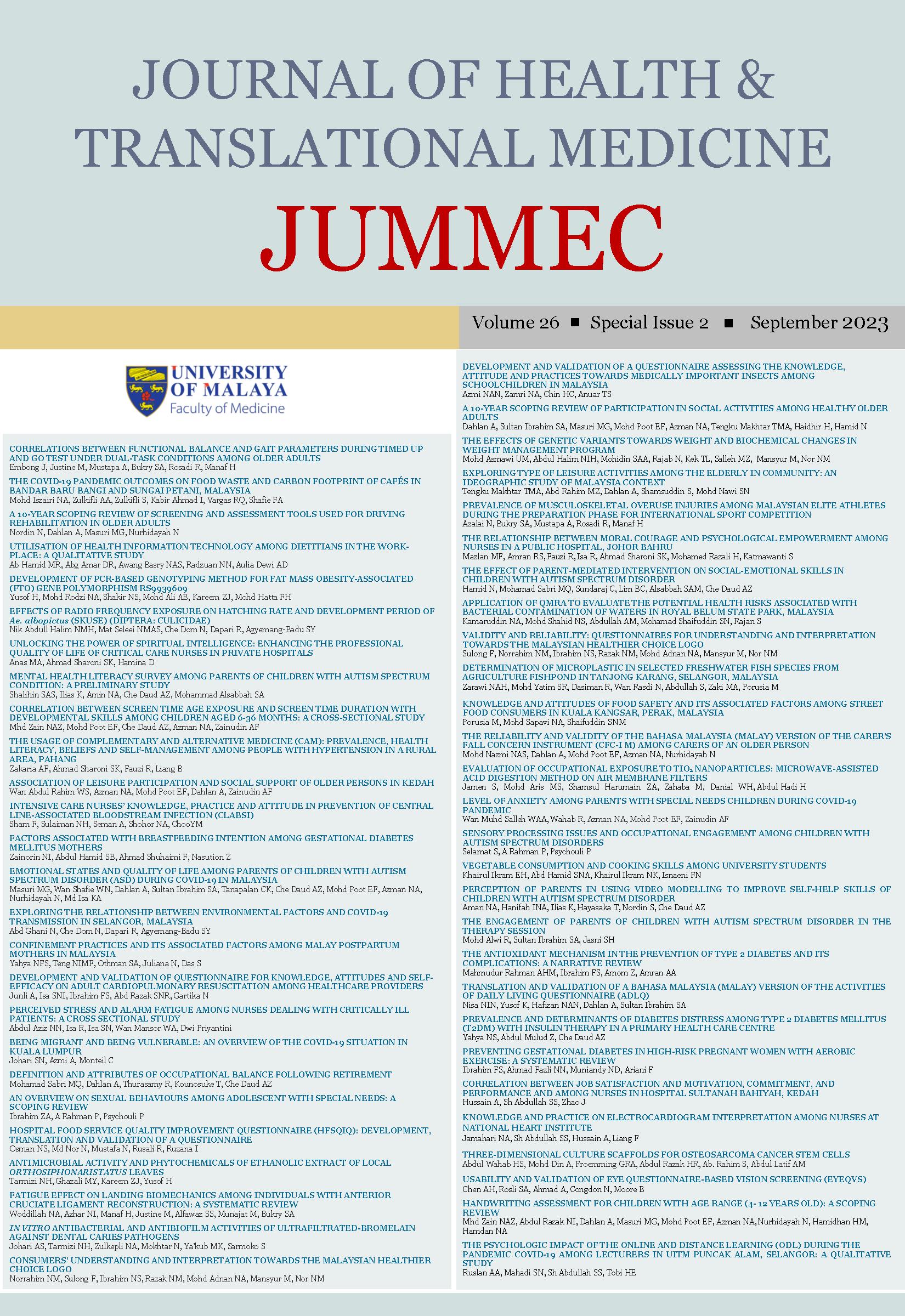PERCEIVED STRESS AND ALARM FATIGUE AMONG NURSES DEALING WITH CRITICALLY ILL PATIENTS: A CROSS SECTIONAL STUDY
Received 2023-07-08; Accepted 2023-09-06; Published 2023-09-15
DOI:
https://doi.org/10.22452/jummec.sp2023no2.18Abstract
Nurses are exposed to many clinical monitoring alarms in managing critically ill patients, gradually leading to emotional exhaustion and burnout. This situation is called alarm fatigue, where nurses tend to do inappropriate actions to silence the alarms or adjust them outside the appropriate limits. Thus, this study aims to explore stress and alarm fatigue among staff nurses dealing with critically ill patients. A cross-sectional study was conducted among 114 nurses dealing with critically ill patients (ICU/CCU/HDU/NICU, and A&E) in a private hospital in Kuala Lumpur. Using purposive sampling, participants who met inclusion and exclusion criteria were asked to fill up a questionnaire consisting of sociodemographic data, a nursing stress scale, and an alarm fatigue questionnaire. After 30 minutes, the questionnaire was collected. Most nurses dealing with critically ill patients reported a low level of stress (65.8%) and alarm fatigue (69.3%). Based on study findings, subscale workload was identified as the primary source of stress (Mean = 2.516, SD = 0.484). Meanwhile, education level and working shift are the only sociodemographic characteristics associated with stress and alarm fatigue (p < 0.05). However, no significant correlation was seen between stress and alarm fatigue, and this revealed a weak correlation between these two variables (r = 0.078, p = 0.411). Stress and alarm fatigue was found statistically not significant towards each other. Future studies should explore different risk factors associated with alarm fatigue among nurses dealing with critically ill patients.
Downloads
Downloads
Published
Issue
Section
License
All authors agree that the article, if editorially accepted for publication, shall be licensed under the Creative Commons Attribution License 4.0 to allow others to freely access, copy and use research provided the author is correctly attributed, unless otherwise stated. All articles are available online without charge or other barriers to access. However, anyone wishing to reproduce large quantities of an article (250+) should inform the publisher. Any opinion expressed in the articles are those of the authors and do not reflect that of the University of Malaya, 50603 Kuala Lumpur, Malaysia.


